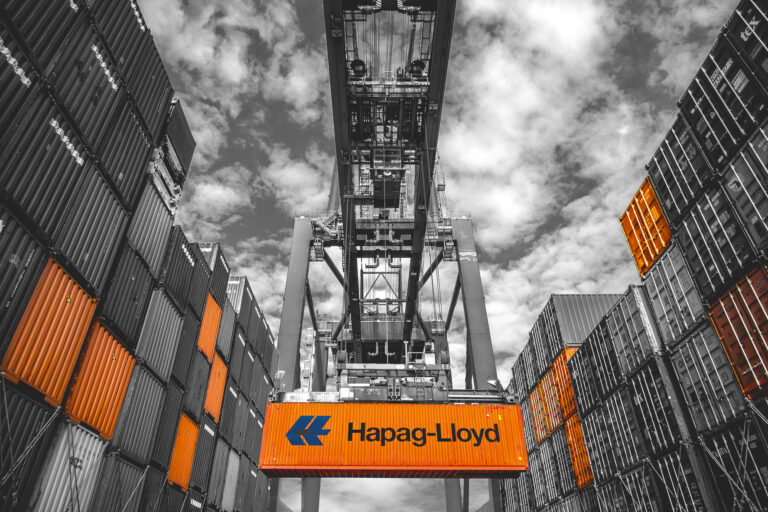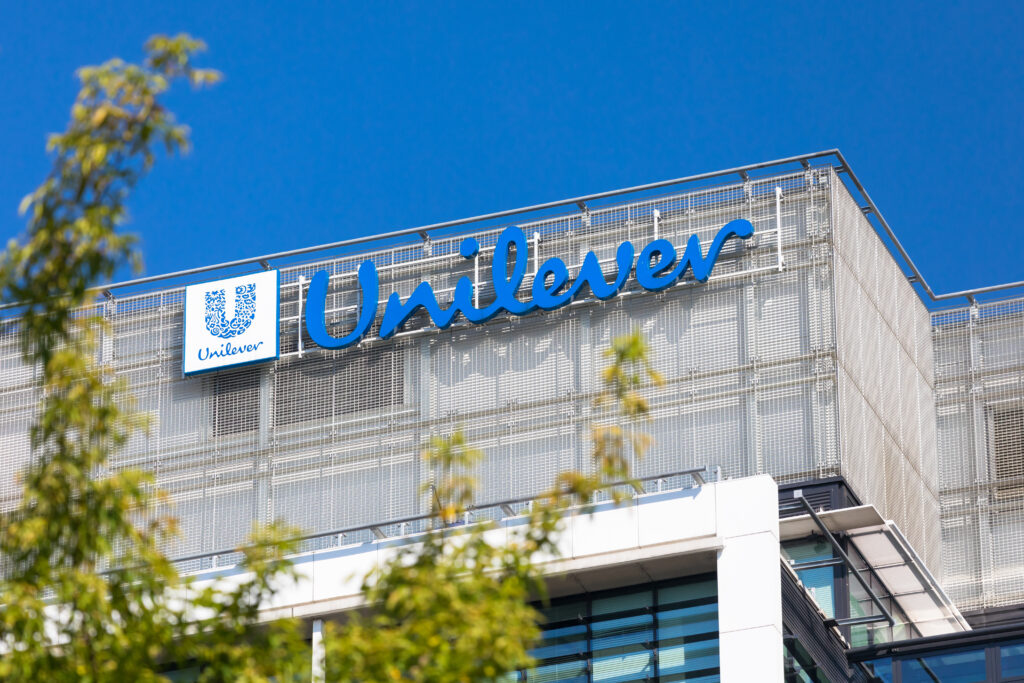
Digital transformation meets ice cream manufacturing. Antonio Tuccillo, Process Engineer and Digital Lead at Unilever’s Caivano site, and his team tell Digital Bulletin how they have brought the fourth industrial revolution to the Italian factory and the impact it has had on its workers’ lives
From water and steam engines to electricity and computers, the manufacturing sector has a history of constantly revolutionising itself. The next step? Industry 4.0.
The fourth industrial revolution will bring digital transformation and automation into the manufacturing industry, with the goal of creating the smart factories of the future. One area that this transformation will greatly affect is food manufacturing. In fact, the market for applying technology in the food industry is predicted to reach over $250 billion by the end of 2022. This digital transformation will see manufacturers take full advantage of data analytics, IoT and autonomous vehicles to streamline operations, make predictions and increase the overall safety and productivity of the sites.
Many companies have already taken the first steps towards this vision, and Unilever is no exception. The consumer goods multinational has over 300 factories in more than 100 countries, producing an enormous array of products, from food and refreshments to beauty, personal care and home care. But even huge projects start local. To witness some of the company’s first transformative projects, we have to travel to the south of the country, to a city 14km north-east of Naples named Caivano.
“Caivano is one of the most advanced sites at Unilever in the refreshment category,” Antonio Tuccillo, Process Engineer and Digital Lead in Unilever’s Caivano site, and the face behind the site’s digital transformation initiative, tells Digital Bulletin.
The Caivano site is one of the largest Unilever ice cream factories in Italy. The factory was built in 1975 and it employs up to 900 workers during its busiest season. Over half of its ice cream production is distributed within Italy, while the remaining 40% is sold in Europe and the United States. The site is known for its innovative nature, as well as the large range of ice cream products it produces. Its handling of a wide variety of ingredients, including caramel, roasted nuts and coffee, is a rarity in the sector.
In fact, the factory is a member of Italy’s Consortium Meditech, a consortium formed by the largest companies in the south of the country, including FCA, Nestle, Boing and Hitachi, as well as research institutions such as the universities of Naples, Bari and Salerno. The programme, funded by a central government, combines the best brains of both the business and research world to support innovation in the area.
Because of this, Caivano is often the testing ground for any Unilever innovative products, and three years ago the site was selected to lead the company’s ambitious digitalisation and automation project.
“Compared to other industries, Unilever is quite behind in terms of digital transformation,” says Paolo Di Giovanni, Works Director at Unilever’s Caivano site. However, he explains that this is not true solely of Unilever, but also of the ice cream manufacturing business in general, which has long relied on traditional business practices. For decades, its operations have been manual, without any need or desire for automation. Nonetheless, the time for change has now arrived.
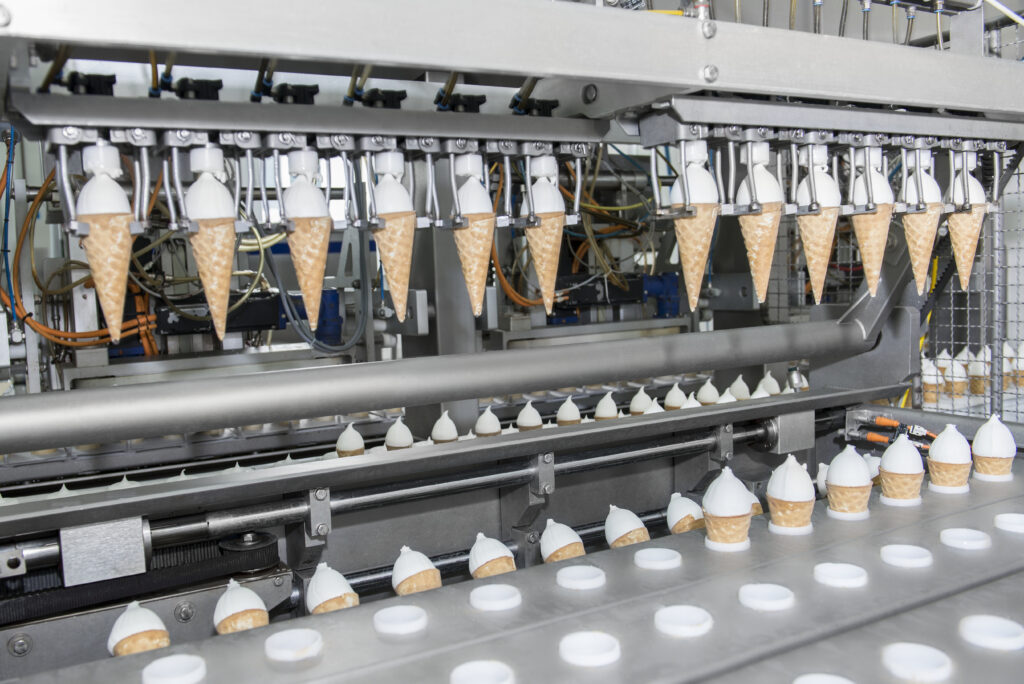
The implementation of this digital roadmap began last year, and it is expected to be completed in 2023. Its benefits are endless. The transformation will support the workers, freeing them from repetitive and routine work and allowing them to upskill, but also accelerate processes, reduce operating costs and improve the overall efficiency of the factory as well as the safety of its operations.
Unilever’s digital transformation has one key element: automation, and within it, the Caivano site is a fundamental piece. It is in this factory that two of the most innovative digital transformation projects are taking place: the robotisation of the site implemented by Elettric80, and a digitalisation of data and information systems carried out in partnership with Engineering Group.
“Caivano is considered one of the most strategic factories we have, because many innovations are implemented here, with all sectors and all technologies represented in our production,” says Di Giovanni. “Since 2018, our factory has been a priority in Unilever’s automation initiative.”
The journey to transform Caivano’s logistics began with the installation of an automated storage solution, and it has significantly accelerated in the last two years thanks to the collaboration between Unilever and Elettric80.
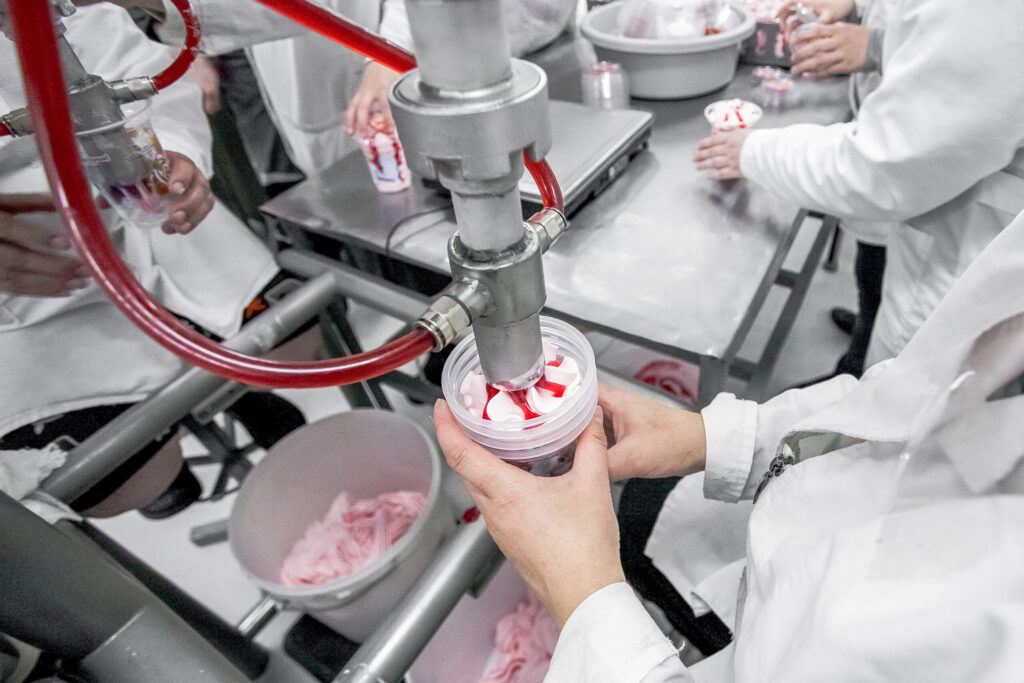
Established in the 1980s in Italy, Elettric80 specialises in the development of automated and integrated intralogistics solutions for daily consumer goods manufacturing companies with the goal of facilitating the development of smart, interconnected and sustainable factories. Elettric80’s vast experience and high level of innovation makes the company a perfect fit for Unilever’s goals.
As of today, the Group has completed 300 smart factories and has installed over 2000 robotics systems and more than 5000 laser-guided vehicles in different parts of the world, as well as 35 high-density automated warehouses since 2016.
“We chose Elettric80 because their solutions are customised, resilient and reliable,” says Martina Rita Troncone, Site Maintenance Coordinator at Caivano.“They design projects based on customer’s needs and goals, using their specific technology and know-how to identify the most efficient solution at the offset of the project.”
The journey to transform the logistics at the Caivano site by employing Elettric80’s expertise started in 2012 with the installation of an automated warehouse, totally integrated with the production cycle and automated with three trilateral laser-guided vehicles equipped with artificial inteligent technology. The journey continues today with the installation of seven more LGVs that handle material from different pickup points and move them to set positions between the production lines, running in very narrow spaces.
“The type of solution that we have implemented has been specially designed to meet our needs for storage and material movements in various small places,” Troncone says.
This requirement for vehicles to navigate the narrow corridors of the factory – as small as two metres wide – without hindering operations and while ensuring maximum safety for operators was one of the biggest challenges of the project, according to Troncone. The implemented solution is highly reliable thanks to the fact that all laser-guided vehicles are equipped with safety systems, above and beyond the international standards established by the regulations in force, able to detect the presence of obstacles moving along the path and in the surrounding area.
A 3D mapping technology designed by Elettric80 teams that diagrams the actual plant floor enables us to understand the space in detail, to identify the correct LGV trajectories and maneuvers, and to anticipate any issues,” Troncone says. Automating these tasks has allowed Caivano to increase its efficiency, sustainability and productivity, by knowing the quantity and location of all of its materials at all times, guaranteeing the total traceability of the products handled, and increasing storage density and product availability. All this while also increasing safety within the factory, both in terms of human-machine collaboration and with respect to operations and products.
The use of manually-operated forklifts is one of the most dangerous aspects of factory work. The operating of these machines accounts for around 85 deaths every year and over 34,900 serious injuries in the United States alone. The human cost of these activities is huge, and smart and integrated automatization can significantly reduce it, alongside costs.
“We have started on a transformation path involving automated vehicles to reduce the safety risk to our people,” Troncone says. “Elettric80’s systems are robust, smart and safe. They develop pragmatic and turnkey solutions, as they have a real vision of how to integrate their technologies within the system already present inside the factory, and they understand the cost of maintenance. Furthermore, they support and guarantee the implemented solutions over time by providing 24/7 support.”
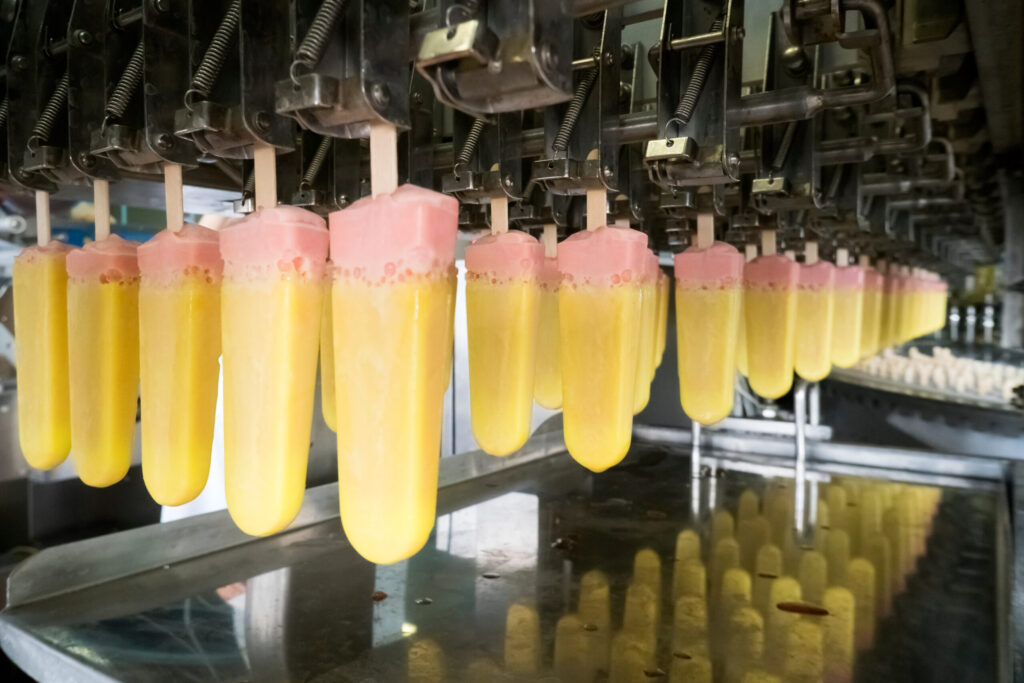
“I Safety, efficiency, and collaborative partnership: the automatisation project has brought these huge benefits to the Caivano site. But it is just one step in a much larger path towards digitalisation.
“The most important need of Caivano is to be competitive on the market, to be flexible and quick to meet the market demands,” Tuccillo says. “The best way to do that, of course, is to transform Caivano into an industry 4.0 plant.”
As Paolo pointed out, up until a few years ago, Caivano was only hardly digitalised. The factory had installed a digital application to handle process control operations but, in all the other departments, the systems were not smart and user-friendly. The automation project was a huge step towards improving this situation, but there was still plenty of work to do to reach 4.0.
“We started the transformation with automation in particular with the LGV project,” Tuccillo says. “But the most important thing is that, in parallel to the automation that addresses and improves the material flows, we invested also into digitalisation of the information flow in order to bring Caivano into industry 4.0.”
But Unilever is not entering that project alone.
To do that, Unilever has partnered with Engineering Group. With over 12,000 professionals in more than 40 locations, the company combines specialist skills in next-generation technologies, technological infrastructures organised in a single hybrid multicloud and the capability to interpret new business models to bring innovation to the ground. Together, the companies have developed a call off system that will handle all the information flow of the materials, from the inbound to the line supply, and integrate it with the existing systems on the site.
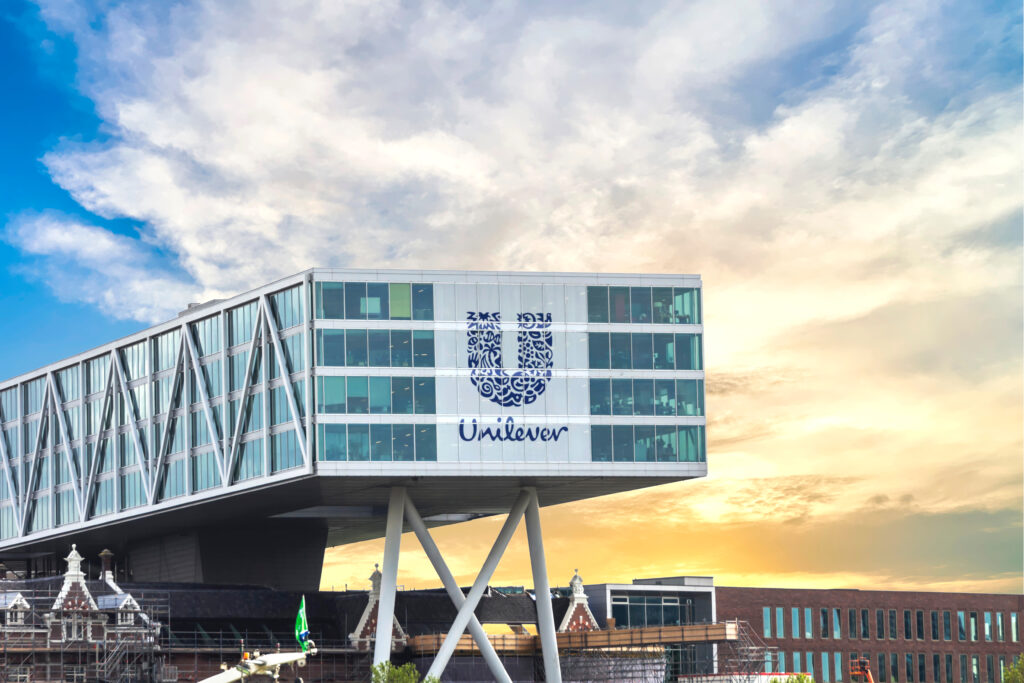

“Thanks to the call off system we have detailed traceability of the materials in the factory and we have improved our quality standard, reducing the risks of human error in the material flow,” Tuccillo says. “But call off was not just that. It represents the pillar for the digital development of the Caivano site. It is a really flexible application that can dialogue with almost every other software. Since its installation, we have integrated the app with almost all the other informatics systems in Caivano.”
The call off system is only one of many projects that Engineering Group and the Unilever Caivano site has been working on for the past few years. In fact, Engineering has become the supplier for the digital system in the site’s process-making area, helping Unilever Caivano navigate the complicated path that leads towards industry 4.0.
“The reliability and the flexibility shown by Engineering in this relationship has been huge,” Tuccillo says. “And, this is the main reason why we have decided to work with them also for the digitalisation or in the banking area and in the overall site. We have chosen them not just as a supplier for our project, but we started a deep collaboration as a partner.”
One of the main goals of this collaboration is the drive to digitalise the totality of the site’s information flow, from planning to production. The vision is to be able to create a unique repository of information that is easy to access, easy to use and paperless. It is a huge project that will see a digitalisation of most of the site’s processes and, as a result, will reduce manual activities, potential human errors and delete all the paper archives.
For example, over the last year, this project has allowed Caivano to implement data analytics solutions to fully automate the data that comes from the shop floor and shipments and automatically control dosage of ice cream according to the demand, without human intervention. And this is just the beginning.
“All of this could be only done thanks to the call off software installation that created the backbone for the digital development of Caivano,” Tuccillo says. “And the objective of this kind of project is to take insight from data never analysed before in order to improve the performances to create value added and to be more competitive on the market.”

However, Caivano’s digital and automation transformation is not a story of machines, but people. The digitalisation will increase worker’s safety, eliminate all their routine tasks and also simplify access to the information needed to perform their tasks.
“Digital helps to improve the physical, mental and emotional wellbeing of Unilever people,” Tuccillo says. “Our workers can use mobile solutions to have the right information in the right location at the right moment. For example, our forklift driver has a tablet on their forklift where our call off of application is installed and he has whatever he needs at his fingertips.”
Nonetheless, the biggest impact of digitalisation for Unilever workers comes in relation to their own job transformation. The automatisation of the factory has allowed its employees to upskill themselves and become “digital workers” able to properly leverage all the tools and solutions of a factory 4.0.
The benefits of this transformation are undeniable, but they weren’t always welcomed.
“To be very honest, when we approached the digital automation transformation, the reaction of people wasn’t good,” Di Giovanni says. “This was simply because they thought that it was something to steal their job or to reduce the number of people. However, when we decided to implement a training programme, a very good package in terms of upskilling and rescaling, the consideration changed.”
This new package is part of Future of Work, a Unilever-wide programme launched last year to improve the working conditions of the company’s 149,000 employees. The programme aims to support the upskilling of Unilever’s workers but also to improve their mental health and motivation. In less than a year, it has proven to be significantly popular, and successful.
“We have embraced the entire population,” Di Giovanni says. “We have dedicated the training not only to the operators, but also to the technician, to the middle management without forgetting the leadership team. And this has been really appreciated, as demonstrated by the performance we had last year and in the first quarter of 2021.”
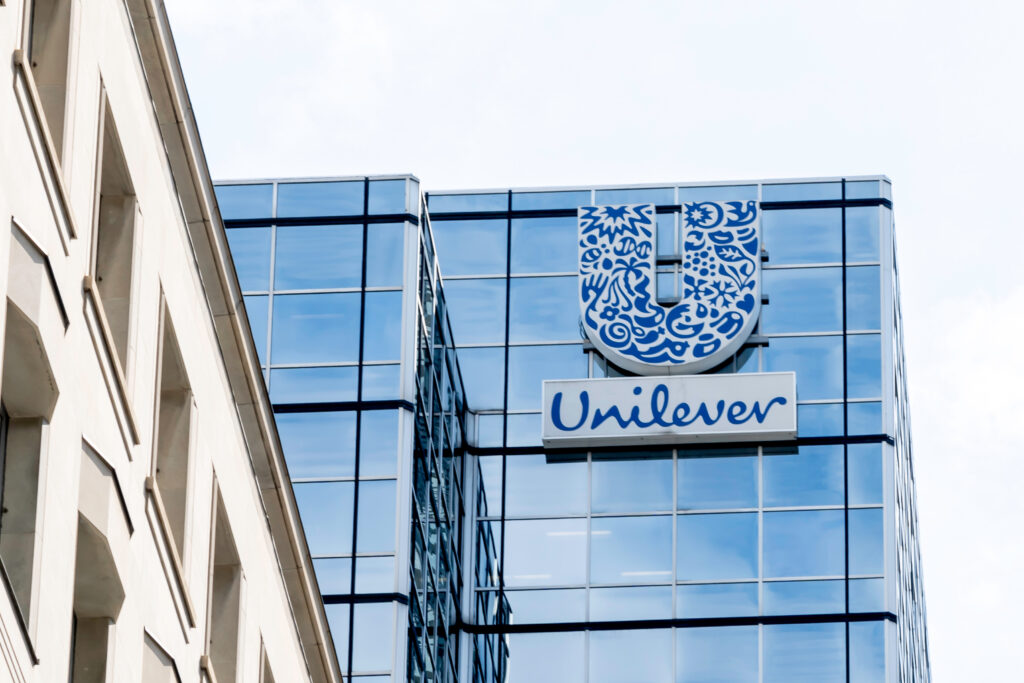
Now, with a new workforce and improved digital systems, Unilever is looking towards a future that looks brighter than it has ever had. But there is still work to be done to achieve it.
“Caivano is one of the most advanced sites at Unilever in the refreshment category but, to be honest, digitalisation is a journey that never ends,” Tuccillo says. “Technologies are always improving, and our internal processes also change and adapt to respond quickly to the market demand. Therefore, we always work from a continuous improvement perspective, always looking to the next improvement to be done.”

